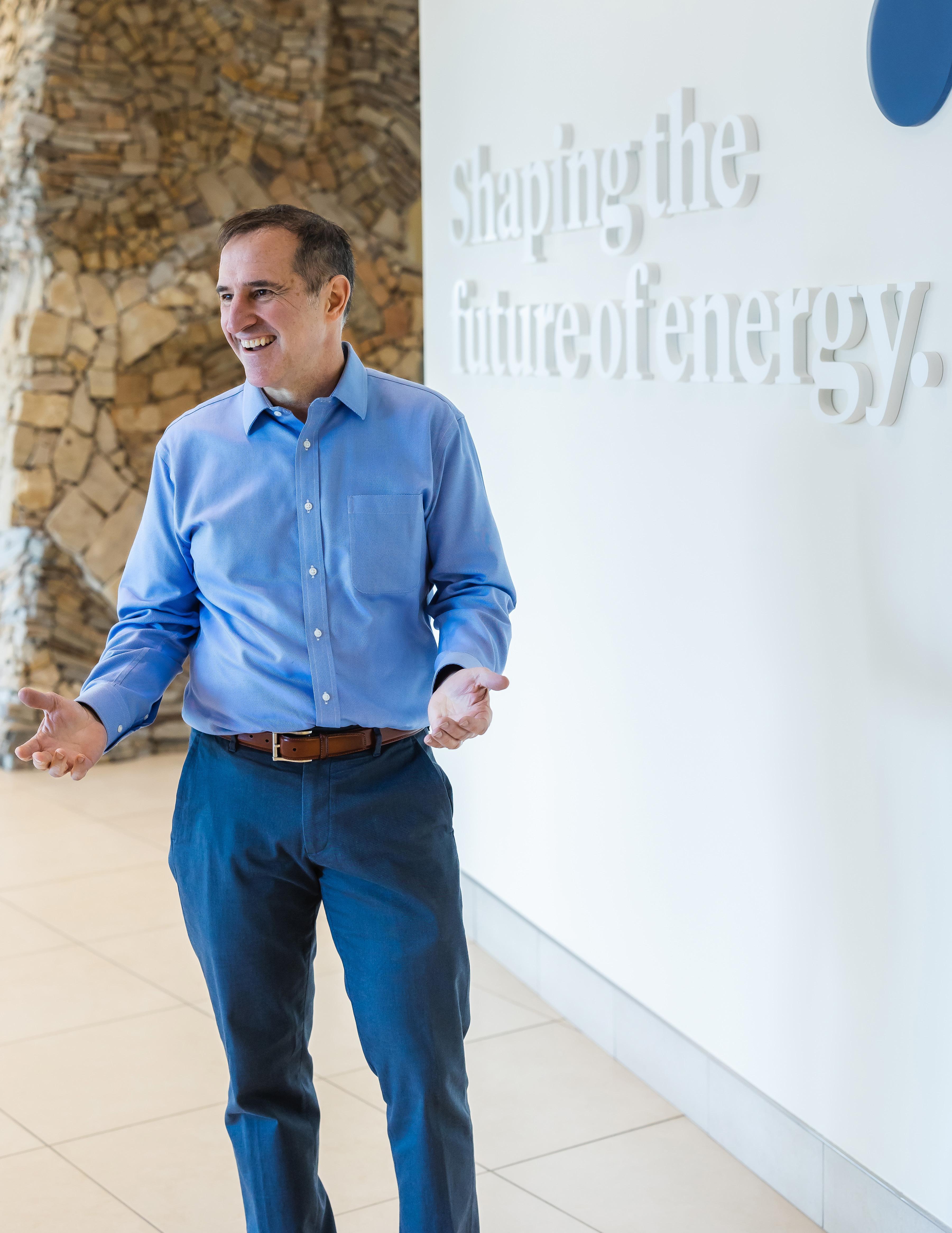
3 minute read
Conscious Leadership in Action
“Human social organizations are created and guided by leaders— people who see a path and inspire others to travel along the path. Conscious Leaders focus on creating value for and harmonizing the interests of the business stakeholders. They recognize the integral role of culture and purposefully cultivate Conscious Culture.”
That’s conscious leadership as defined by Conscious Capitalism. Here are examples of how it’s lived out at IGS Energy:
Practicing authenticity
We don’t do corporate jargon. We keep information transparent—we share financial performance on a quarterly basis with employees.
Employee happiness
Employee engagement, investing in our employees’ health and wellbeing, and DEBI (diversity, equity, belonging and inclusion) are at the top of our strategic focus. We set aside time to invest in helping our employees build their emotional intelligence.
Building a learning organization Leaders within the organization can access tools like StrengthsFinder, DISC personality and other work style assessments. We encourage personal development and demonstrate it from the top through our deep involvement with the Stagen Institute, in which all Executives and VPs are sent through an intensive, one-year program.
Regular revitalization
We believe in work-life balance, and our leaders take PTO and encourage their teams to take PTO. We talk about “recalibrating”— taking a minute to catch a breath, reset, practice mindfulness. The company provides the Headspace meditation app to all employees.
You’re also really amped about working with dairy farmers on a project that is breaking ground soon.
We are going to be using manure from cows, which there’s a lot of, and that’s a problem because it creates methane (the second-largest source of greenhouse gas after carbon dioxide). So we’re taking the manure and processing it to make a usable form of natural gas that we can put into the pipeline and transport to our CNG fueling stations, where trucks are using it.
You’re going from using diesel to using renewable natural gas from dairy cow manure, and that process is said to carry a net-negative carbon footprint.
These projects are worth pursuing, even though they can carry risk. And it’s possible not all of them are going to work. But I think that’s the beauty of entrepreneurialism—the opportunity to take these risks and the excitement of wow, what if we could make that work?
You’re a founding member of the Columbus chapter of Conscious Capitalism. What does Conscious Capitalism mean?

The four pillars of Conscious Capitalism are purpose, stakeholder orientation, conscious leadership and conscious culture.
Purpose: The idea is that companies should be guided by a purpose higher than profit. IGS’ is to create a sustainable energy future for a healthier planet.
Stakeholder orientation: The recognition that a business needs to create value for its customers, employees, vendors, investors and communities—not just its shareholders in the form of profit.
Leadership: Leaders should engage in conscious leadership to inspire others inside and outside the company to rally around its higher purpose. Conscious leadership is values-based and requires the leader do their own personal growth and learning in order to show up more effectively for their teams.

Culture: Conscious companies intentionally create a culture that reflects and drives their values and purpose. Conscious cultures are built on trust, transparency and care.
And why is Conscious Capitalism important to you?
Shareholder mentality, you know, is focusing on just the financial results, just the valuation, and it tends to drive to shorterterm durations. Then you start to ignore the key important pieces that I think drive longterm success.
I think we’ve done quite well financially. I think our shareholders are very happy. And I think the reason we do it well, and it’s sustainable, is because along the way, we’re taking care of our employees, our customers and our business partners. And those are very important stakeholders to us. We measure our success over longer time periods, and we aren’t going to make short-term decisions to maximize quarterly earnings.
That’s why we will never go public or take outside money: We don’t want to be influenced by a shareholder mentality that is in conflict with our vision and how we want to run the business.
At its core, Conscious Capitalism believes that business is a force for good. I think business can be a force for good. Corporations today have created a negative connotation with the younger generation— there is lack of trust and a perception that businesses are bad actors. I can understand their point of view, because unfortunately there are many examples of business leaders and corporations that don’t conduct themselves well. They may deceive their customers, produce faulty products, treat their employees poorly and in some cases outright violate regulations and laws. When businesses seek only to maximize profits and don’t take into context the way that they do that, then that ultimately is bad for the image of business and capitalism in general. It’s my hope that bad actors are brought to justice and that good companies, ones that think long term and conduct themselves with integrity, will thrive and earn back the trust of future generations.









